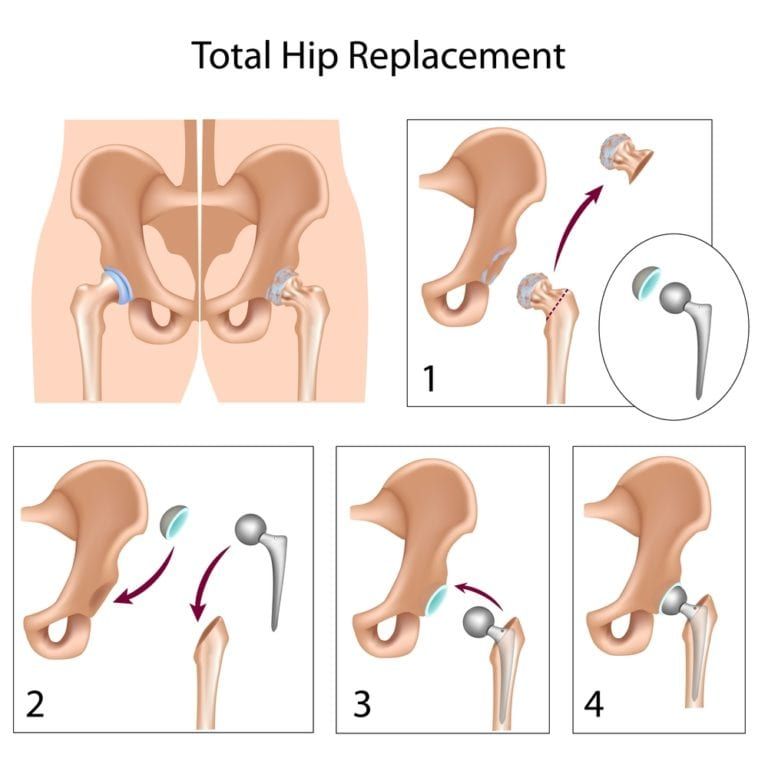Hip Replacement

The hip is one of the body’s most important joints. It plays an important role in nearly every basic function, from sitting and standing, to walking and bending. Most people are born with healthy hip joints that facilitate a wide motion range without pain or discomfort. But over time, one or both hips can develop complications that stiffen the joints and cause significant discomfort on a day to day basis. Rather than cope with more physical limitations, discomfort, and a less active lifestyle, many patients turn to orthopedic surgeons to undergo a hip replacement. Today’s minimally invasive hip replacement procedures make it possible for patients to achieve restored joint function with as little inconvenience as possible.
Did you know…
that hip replacements are used to treat patients who are suffering from both traumatic injuries and diseases like arthritis? Currently, hip replacement is one of the most common joint replacement surgeries in the U.S., with approximately 300,000 patients opting for the procedure on an annual basis. Of those patients, the vast majority experience a successful recovery without the need for a secondary operation. In fact, many artificial hips can last up to 30 years or more!
Frequently Asked Questions
Am I a candidate for a hip replacement?
You may be a candidate for a hip replacement if you have severe joint damage or a joint disease that causes chronic and debilitating pain. Individuals who are at high risk for infection or who suffer from chronic health issues, such as morbid obesity, may not be eligible for this procedure. Only a consultation with your orthopedic surgeon can determine whether hip replacement is right for you.
What should I expect during a hip replacement?
You’ll be placed under general anesthesia for your hip replacement. During the procedure, and incision is made in your hip, through which diseased bone and other tissues are removed. The artificial hip parts are either cemented in place or else fixated in a way that will encourage your biological bone to fuse with the artificial hip. Most procedures take no more than an hour, with many patients going home in as little as 1 or 2 days.
What should I expect during the recovery period?
You will not be released from the hospital until you can safely get in and out of bed on your own, as well as perform a normal daily task by yourself. It is normal to experience pain and swelling in the first few days and weeks following your surgery. However, discomfort should subside with time. Be sure to take all medications exactly as prescribed and attend your follow-up appointments with your surgeon. Keep in mind that drug, cigarette and excessive alcohol use can complicate the recovery process and affect the outcome of your surgery.













